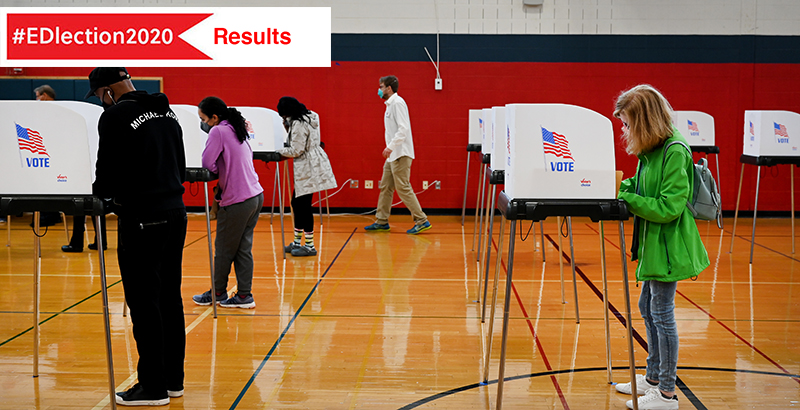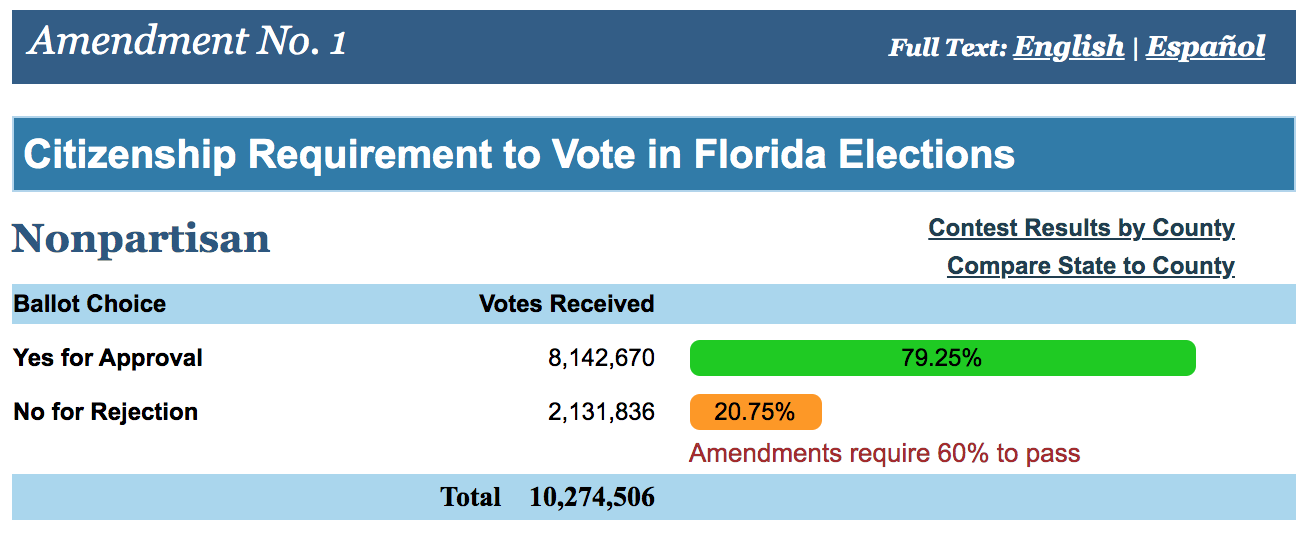Florida Voters Choose to Amend State Constitution to Say ‘Only a Citizen’ Can Vote

2020’s KEY EDUCATION VOTES: See our full coverage of the 46 races that could reshape America’s schools following Election Day — and get the latest updates on state policies and students’ challenges during the pandemic by signing up for The 74 Newsletter.
Florida voters chose to amend their state constitution this Election Day to specify that “only a citizen” can vote.
The change is largely a symbolic one, as the state already limits voting to citizens, with the constitution stating “Every citizen of the United States who is at least eighteen years of age and who is a permanent resident of the state, if registered as provided by law, shall be an elector of the county where registered.”
The amendment, which passed Tuesday with support from 79 percent of voters, would change “Every citizen” to “Only a citizen.” It needed 60 percent to pass.

The Florida League of Women Voters, American Civil Liberties Union and other groups urged voters to oppose the amendment, saying it would not make any substantial changes to the constitution. The Florida ACLU’s voter guide said the amendment “opens the door for additional measures that would subvert and endanger the right of every citizen to vote.”
Some jurisdictions in other states allow noncitizens to vote in local elections. For example, San Francisco in 2018 started allowing noncitizens to vote in school board races, creating a flashpoint in the culture war over immigration. There are no major efforts currently underway to extend voting rights to noncitizens in Florida.
A political action committee called Florida Citizen Voters promoted the proposition. John and Gina Loudon, who have connections to President Donald Trump and have been active in Republican politics around the country, formed the group, according to the South Florida Sun-Sentinel. John controls Citizen Voters Inc., a Florida-based nonprofit that provides money to the PAC but has not disclosed the source of its cash, the Sun-Sentinel reported.
The Sun-Sentinel editorial board also opposed the amendment, writing “we do know this amendment is unneeded, it’s redundant, it’s junking up an already crowded ballot and it’s bankrolled by contributors who want to keep their identities secret.”
Alabama voters approved a similar measure Tuesday, and Colorado voters appeared poised to do the same.
2020’s KEY EDUCATION VOTES: See our full coverage of the 46 races that could reshape America’s schools following Election Day — and get the latest updates on state policies and students’ challenges during the pandemic by signing up for The 74 Newsletter.
Get stories like these delivered straight to your inbox. Sign up for The 74 Newsletter

;)
